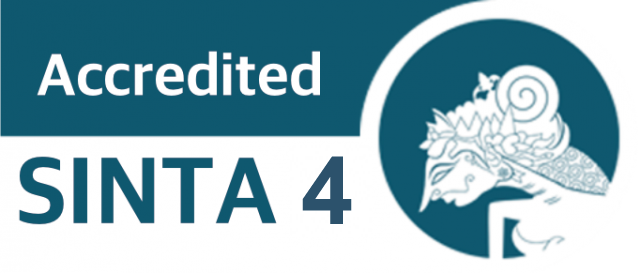KOMUNIKASI DALAM PROGRAM TALK SHOW DI TELEVISI : Kajian Perbandingan Komunikasi Talk Show Dan Komunikasi Langsung
Abstract
The objectives of the study are to find out the types, the difference, and the reasons of conversational maxims occurring in the talk show. This research was conducted by qualitative content analysis method. The data were three topics of Mata Najwa namely politics, law, and education with different guests culture; Javanese, Makassar, Bataknese, and Chinese. The findings showed that all kinds of conversational maxims, i.e. quality, quantity, manner, and relevance, occurred in all topics and guests. Conversational maxims occurring in topic of politics is dominantly violated maxim of relevance, in topic of law is dominantly obeyed maxim of relevance, in topic of education is dominantly violated maxim quantity. Conversational maxims occurring with the Javanese guests is dominantly violated maxim of relevance, with the Makassar, Bataknese, and Chinese guests are all dominantly violated maxim of quantity. There are no relationship between culture and language tradition of the guests and their conversational maxims because the guests of Makassar, Bataknese, and Chinese have the same violation of maxim of quantity and all different guests have the same abstain obedience of maxim of manner. Factors affecting conversational maxims found are (1) The language attitude of the guests as participants in answering, (2) tendency to hide something or not to reveal truly, (3) making a joke or humorous answer, (4) using the metaphorical words in comparing or using language features, and (5) the issues of the topic itself.
Keywords
Full Text:
PDFReferences
Baksin, Askurifai. 2006. Jurnalistik Televisi Teori Dan Praktik. Bandung : Simbiosa Rekatama Media.
Bungin, Burhan. 2007. Sosiologi Komunikasi: Teori, Paradigma, dan Diskursus Teknologi Komunikasi di Masyarakat. Jakarta : Kencana Pradana Media Grup.
Grice, H. Paul. (1975) Logic and Conversation, in P. Cole and J.L. Morgan eds, Syntax and Semantics, vol. 3. New York: Academic Press.
Hofmann, R. 1980. On The Derivation Of A Conversational Maxim. Shimane National University Matsue City, Shimane, Japan 690.
Levinson, Stephen. C. (1987). Pragmatics. Cambridge: Cambridge University Press.
Masduki, 2004. Menjadi Broadcaster Profesional,Pustaka Populer. Yogyakarta.
Miles, M.B. and Huberman, A.M. 1994. Qualitative Data Analysis. Thousand Oaks, CA: Sage.
Mulyana, Deddy. 2005. Ilmu Komunikasi Suatu Pengantar. Bandung : Remaja Rosdakarya.
Parwadi, Redatin. 2004. Televisi Daerah Diantara Himpitan Kapitalisme Televisi. Pontianak : Untan Press.
Rahardi, Kunjana. 2005. Pragmatik. Jakarta: Erlangga.
Rustono. 1999. Pokok-Pokok Pragmatik. Semarang : IKIP Semarang Press.
Timberg, B.M., 2002. Television Talk: A History of the TV Talk Show. University ofTexas Press.
Yule, George. (1996) Pragmatics. New York: Oxford University Press.
Website Materials:
(http://www.matanajwa.com/read/about)
(www.youtube.com)
DOI: https://doi.org/10.26499/mm.v15i2.1174
Refbacks
- There are currently no refbacks.



